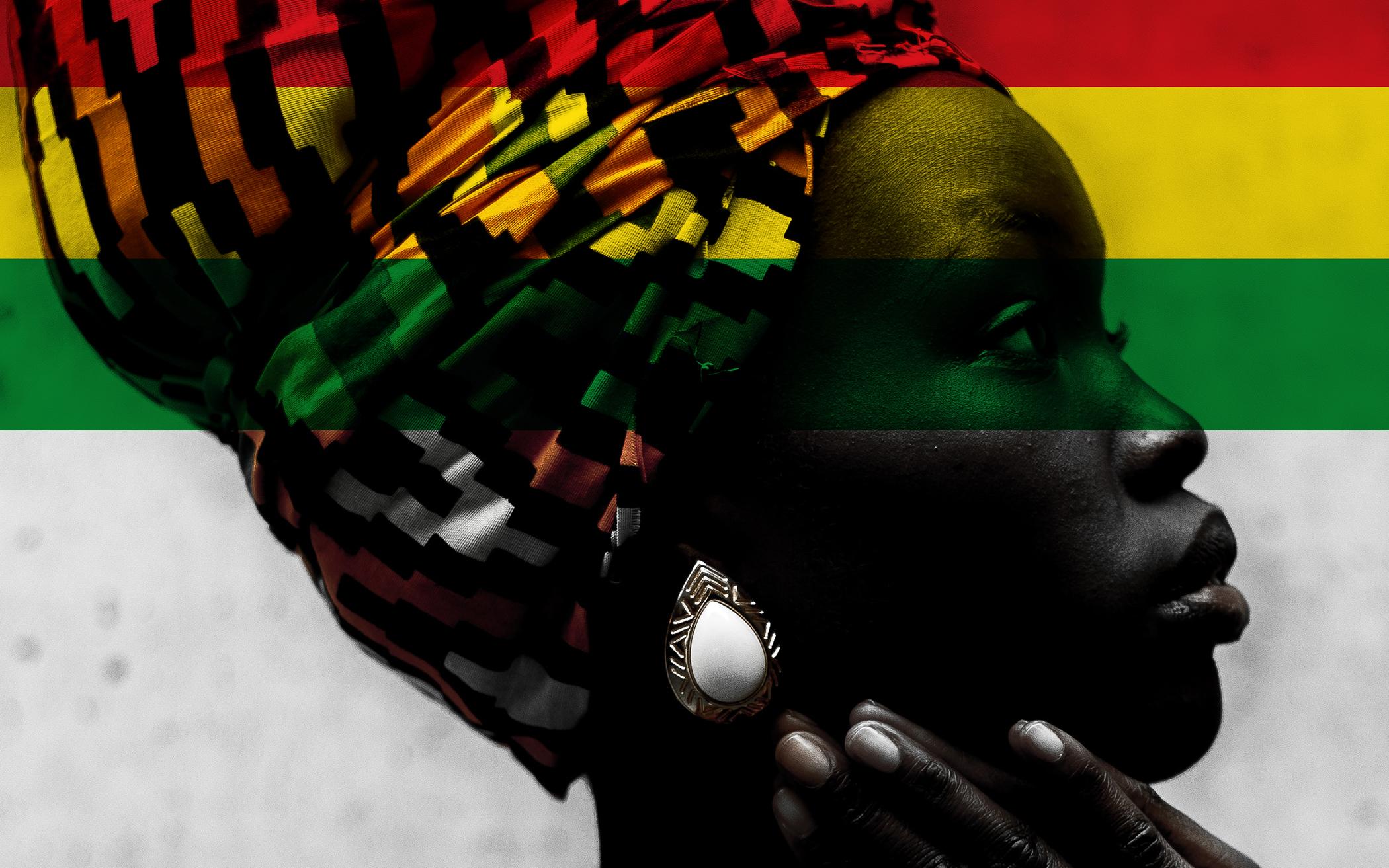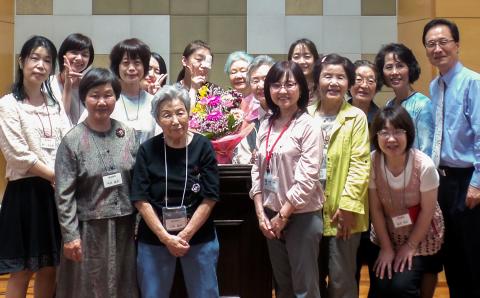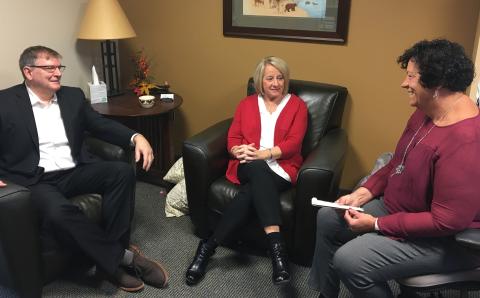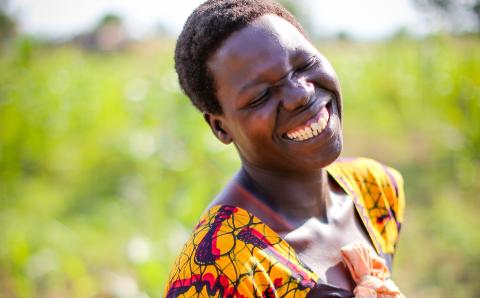Black History Month is a time when people across the U.S. and Canada reflect on all the ways in which people of African descent have affected our culture and our world in big and small ways. We at The Banner wanted to explore the value of this month for Christians with different backgrounds by asking three questions of Michelle Loyd-Paige, an African-American woman who lives in Michigan; Kim Radersma, a white woman who lives in Ontario; and James Lee, a Korean American man who lives in New York.
Why is Black History Month important to you?
Loyd-Paige: Black History Month is important to me for several reasons.
First, Black History Month began as an effort to recognize the many contributions of Africans and black Americans to the economic and social development of the U.S.A.—a place where many Africans were brought as slaves, kept in bondage, and denied basic civil rights. It’s a place where, still today, experiences of racism are pervasive. Nevertheless, the contributions of Africans/black Americans to this country have been numerous. These accomplishments should be celebrated and given proper credit—as should be the case for all people groups who have contributed to the building of this nation.
Second, it is a matter of truth-telling. The U.S. history that is often taught in our schools is very white. The history of black people in America rarely goes beyond slavery, Martin Luther King Jr., and Rosa Parks. Black History Month is an invitation and an opportunity to dig deeper into U.S. history and the accomplishments of African Americans.
Third, it is about representation. Almost 13% of the U.S. population is African American, and 70 metropolitan areas have black populations over 30%.
Fourth, I identify as a black woman. Black history is my history.
Radersma: Black History Month offers me, a teacher, an opportunity to recognize and celebrate the amazing achievements and unfathomable resilience of past and present members of the black community. So many writers, business leaders, filmmakers, politicians, athletes, scholars, doctors, and more have contributed crucial meaning and depth to the fabric of our lives in North America.
However, this month also prompts me to acknowledge a past that has yet to be reconciled. Recently, a black male student said, “If you’re not addressing the racism I’m experiencing here, then celebrating diversity is for white people.” I keep this statement printed above my desk. It provokes me daily to grapple with the uncomfortable truth that celebrating diversity while ignoring ongoing racism in the U.S. and Canada is a sham. Mere celebrations are not solving deep, ongoing, systemic problems.
This young black man, my students, and my children are watching me. They are wondering if I will confront the truth of the terror of the past and if I will honestly examine the ways the devastation of white supremacy continues to reverberate in our current realities.
Lee: I believe Black History Month is a crucial part of the fabric of American history. Although some may consider this “another person’s story,” I consider it “our story.” Our country was founded by diverse people from various backgrounds. Some might argue about the validity of how our nation was founded, but we cannot argue about the Italian and Chinese laborers who built the railroads that connected the East to the West. From the cornfields of Iowa to the streets of New York City, every individual had an impact on the nation we live in today. Therefore, the African American story is also my story. America is my country. America is their country. America is our country.
How does your Christian faith connect with Black History Month?
Loyd-Paige: The telling of black history is a narrative involving white Christians as oppressors. As a black American, I think my Christian faith is a testament to the power of the gospel. It is not intuitive that I would be a Christian or, more specifically, Christian Reformed. Christians, some who were Reformed, have been complicit in slavery, Jim Crow, and school segregation, and they were slow to integrate their churches. Some white Christians during the time of slavery argued against baptizing African slaves because that would complicate keeping Africans enslaved. Africans were viewed as property, not imagebearers of God. I am a Christian despite what white Christians did to my ancestors. I am from a people who were told we could not, we should not, and we dare not, but with the help of the Lord, we survived and thrived. With faith in a God that is bigger than oppressive systems and racist Christians, I found hope in the Word of God—not from what was preached by those who could not see me as a sister in Christ nor an imagebearer of God. As the hymn goes, other African Americans and I have “come this far by faith.”
Radersma: In a 2017 post on the On Being blog, Black scholar and activist Christena Cleveland said, “Turning our attention toward systemic pain is not something we typically associate with spiritual nourishment and liberation, but what if it is? What if we can’t truly experience the hope of the Divine until we are able to experience the Divine in the most hopeless situations?”
I believe doing the difficult work of turning our attention toward systemic pain, particularly systemic racism, can be transformative. For white people, doing this work ourselves is a way to explore how being white has shaped us without burdening people of color with our ignorance. This is why I’ve been a part of Kenosis Learning Communities in southern Ontario, created by the Office of Race Relations of the Christian Reformed Church. Based on Jesus’ own self-emptying (as described in Phil. 2:7), communities of white Christians seek to hold each other accountable for the ways white supremacy has harmed people. In community, we ask difficult questions and help each other notice and take responsibility for the persistent, invisible privileges of which we are so often unaware, so that we may embody more of what it means to imitate Christ.
This isn’t easy work. But I feel convicted that God invites me to it and to participate in his work of redemption.
Lee: When I think about the history of the black church, I think about oppression. Throughout history, the black church has been oppressed in so many different ways. But through that oppression, members of the black church have learned to cry out to the Lord. They have learned to testify to the Lord’s faithfulness in the dark valleys of the shadow of death. The joy that comes from sorrow is incredibly powerful. It’s something that is biblical, but something that also is relevant to my heritage.
I am a Korean American. For many years, the Korean people were brutalized by the Japanese. The Japanese colonization that occurred on the Korean peninsula between 1910 and 1945 affected my grandparents’ generation. Through the oppression, the Korean church was greatly impacted: the people learned to cry out to the Lord like the black church. The Korean church has learned to rely on the power of the Holy Spirit. Therefore, through the Holy Spirit, those in the Korean church have learned to lean on each other and ultimately learned to persevere.
Today the Korean peninsula is home to the largest Protestant church in the world. I am where I am today because of that heritage. Therefore, my Christian faith connects with the history of the black church.
How do you respond to people who don’t think there should be a Black History Month?
Loyd-Paige: I rarely run into people who don’t think there should be a Black History Month, but I am sure they exist. If I did meet someone who did not think there should be a Black History Month and was trying to convince me of such, I would first want to discern if the person wanted to have a conversation or just wanted to make their views known. If they just want to make their views known, I’d “shake the sand from my sandals” and keep walking. People are entitled to their own opinions. But if someone wants to have a conversation, I would welcome the opportunity to share why black history is worth celebrating. Committed to having a conversation, I’d want to establish that the conversation was a dialogue and not a debate. I’d want to know if the person thought there should not be months designated for the celebration of any ethnic/racial groups or just African Americans. Their answer would dictate the next step in the conversation. Ultimately, I would share much of what was in my answer to the first question and point out that almost every racial group in the U.S. has a month.
Radersma: This depends entirely on who’s asking the question and what kind of relationship I have with them. If they’re white, I might ask questions to spark curiosity, such as:
Why do you think there shouldn’t be? What would it mean if there weren’t?
Are you aware of statistics that reveal vast disparities between black and white people in wealth, education, incarceration, access to health care, and many more areas?
Are you familiar with the history of policies and legislation that created and maintain these gaps?
Do you have personal relationships with many black people? Black mentors? Black leaders?
Do you read or listen to Black voices regularly?
Do you listen carefully to the voices of those most impacted by systemic racism in our countries (not offering help or trying to save, but listening and learning)?
Are you learning about how your white skin positions you in this world? Are you seeking to unpack the privilege and power this allows you?
This February, as we celebrate the amazing accomplishments of black people, white Christians also have an opportunity to grapple with the ways we are complicit in a system that privileges us, and in the process, to build a new kind of community.
Lee: Everyone has a unique story. Our nation has a unique story. If we don’t take the opportunity to listen to that story, we’re going to miss out on the full picture of who we are today. That story isn’t necessarily just filled with good. It’s also filled with the bad and ugly. Our nation was built on each person’s story to build a bigger picture, and that picture is not finished yet.
Going Deeper
Here are a few book suggestions from Kim Radersma for further reading:
- So You Want to Talk About Race, by Ijeoma Oluo
- I’m Still Here: Black Dignity in a World Made for Whiteness, by Austin Channing Brown
- How To Be an Antiracist, by Ibram X. Kendi
- The Very Good Gospel: How Everything Wrong Can Be Made Right, by Lisa Sharon Harper
Discussion Questions
- What does Black History Month mean to you?
- List some prominent black Christians in the history of Christianity, whether American, Canadian, or from other parts of the world. What were their contributions?
- James Lee found connections between his Korean-American history and the history of the black church. Can you find connections between your ethnic or church history with the black church’s history?
- What are some steps we can do to reduce racism and its effects among our church communities and/or neighborhoods?
About the Authors
Michelle Loyd-Paige is the executive associate to the president for diversity and inclusion at Calvin University, a member of Maple Avenue Ministries, and the founder of Preach Sista! (preachsista.org).
Kim is a freelance writer and a high school English teacher pursuing a PhD in Educational Studies at Brock University. She lives with her husband and her two boys in St. Catharines, Ontario, where they attend Jubilee Fellowship Christian Reformed Church.
James Lee is pastor of Christ Community Church in East Islip, N.Y.








